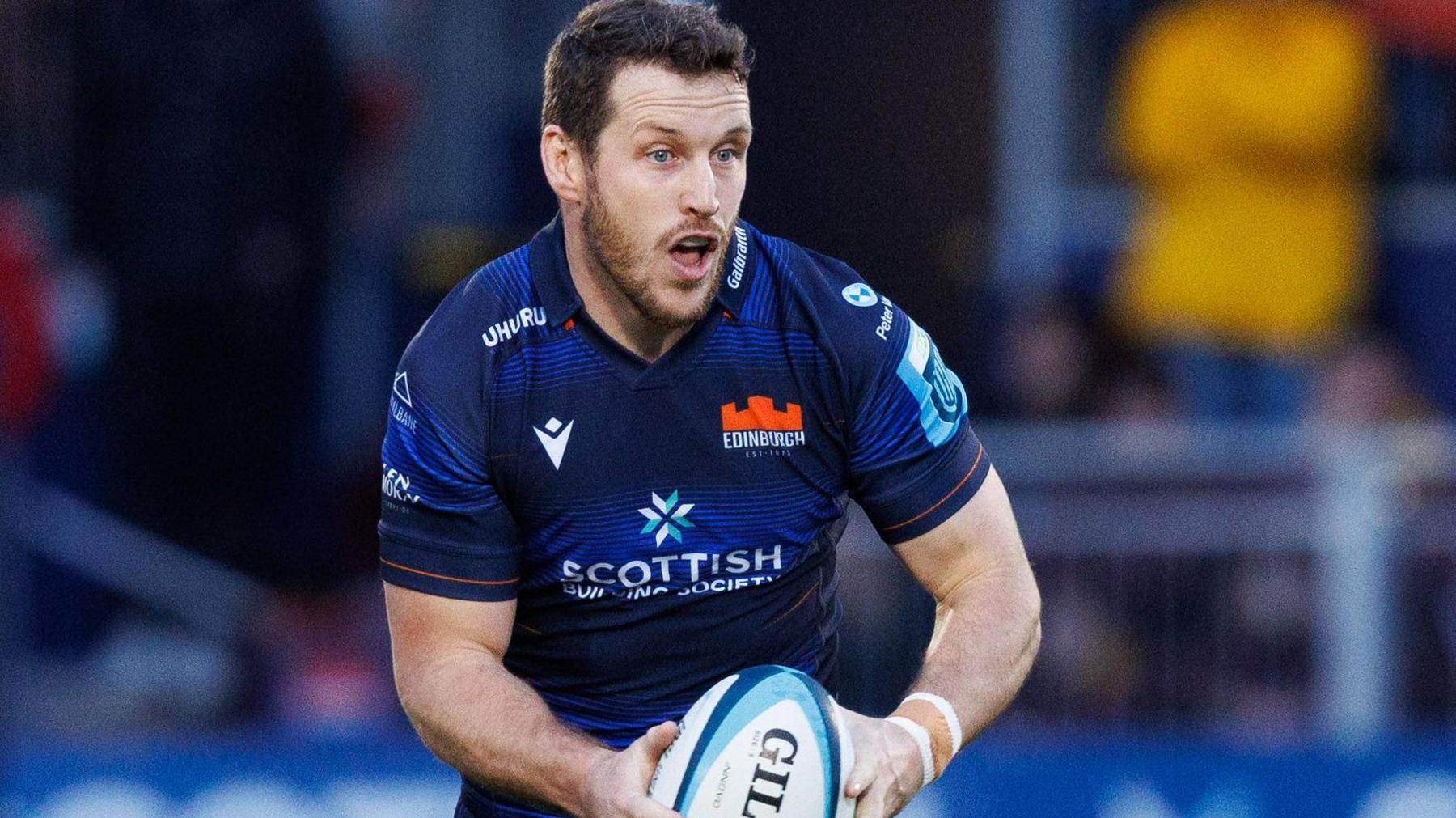Brain-cooling treatment for concussion trialled
Polarcap: The pitchside treatment aiming to help players suffering with concussion
- Published
A new brain-cooling treatment for sports-related concussion is being trialled in professional rugby union.
It is the first acute treatment for the injury able to be delivered pitchside and is being used by six clubs in the United Rugby Championship (URC).
'PolarCap' works by delivering targeted cooling to the head and neck for between 45 and 60 minutes following a concussion injury.
The treatment originates from a five-year study in professional ice hockey in Sweden, which found it had the potential to reduce long-term concussion absence.
Mental and physical rest have until now been the main treatments for sports-related concussion, alongside a graduated return to action.
Erik Andersson retired from professional ice hockey because of concussions and is now the chief executive of PolarCool, the company behind PolarCap.
"I see the different parts of the concussion issue," he says.
"I think we should focus on all parts and how we can prevent them from happening.
"How can we have a safe return to play, which is very important, and can we treat it in the acute phase? Well, actually, as of right now, you can."
Many former players will be familiar with treatment consisting of a cold sponge and bucket of water, while those playing more recently have experience of the more modern post-match ice bath.
Andersson adds: "PolarCap reduces the risk of shivering, which can be counterproductive – going into an ice bath you have a large risk of that, which would not be good for you."

Mark Bennett of Edinburgh has backed the new treatment
Dr Michael Dunlop is the medical advisor to the URC and the team doctor at Edinburgh Rugby, one of the clubs who are trialling the treatment.
"The metabolic dysfunction that happens in a concussion is worse if the body’s temperature is higher," he said.
"What that then translates into is hot concussions; sports-related concussions are potentially worse than cold concussions.
"That really brings us into this idea of whenever we identify an athlete with a concussion pitchside - as we do quickly now in rugby - is there that benefit that cooling their brain quicker, and is there then a translated benefit into their concussion recovery?"
Welsh regions Cardiff and Scarlets, Irish province Connacht, Italian side Zebre Palma and South Africa's Vodacom Bulls are the other URC teams involved in the trial.
A recent study published in the Journal of Neurotrauma concluded that the treatment may "reduce symptoms and shorten return-to-play time" for athletes. It is now being expanded to other sports, such as motorsport and handball.
'Force players with serious brain injuries to retire'
- Published16 September 2022
The smart mouthguard tackling rugby's big problem
- Attribution
- Published7 December 2023
Wales rugby great JPR Williams' concussion fear
- Attribution
- Published27 July 2023
But could bringing players back more quickly actually have a negative effect?
"This isn't about trying to bring people back by day seven or day 10," said Dr Dunlop.
"This product appears to be beneficial in the translated effect of reducing those prolonged stand-down periods players can suffer mainly because they continue to be symptomatic.
"This would hopefully be seen as an adjunctive treatment to the already well recognised and safe return-to-play process.
"I think it's very important there is that recognised distinction of what is done in hospital needs to be very different to what’s done at pitchside."
Scotland centre Mark Bennett used the treatment after he suffered a concussion in the URC match against Stormers in March.
"From a players' point of view, if there is any suggestion it is going to help us, then absolutely we're going to use it," he told BBC Sport.
"It’s a contact sport - there are going to be risks involved, I knew that when I was going to play.
"I think the more research that is happening and the more information we get the better. 'Polarcap' is just another example of that research sort of aiding us and having more information to make an informed decision."